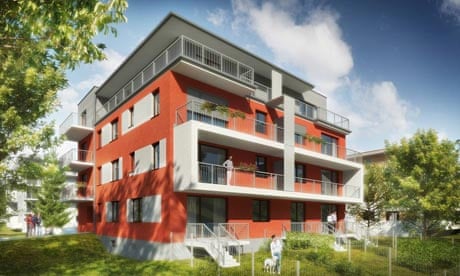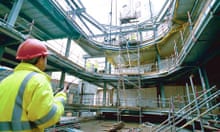Skanska UK is not only clear about its sustainability vision, it also knows exactly what colour it is – deep green.
The international project development and construction company aims to build deep green buildings and infrastructure all with a near-zero impact on the environment. But with an annual spend of more than £1bn on 6,000 suppliers, the company is in no doubt that to achieve its ambitious vision it needs to work closely with its supply chain.
Over the past two years Skanska UK has fundamentally reviewed, modified and in some cases, overhauled the way the company procures products and services to set itself firmly on the road to sustainability.
Supply chain forums and supplier relationship meetings have been extensively used, along with a sustainability procurement champion.
Skanska now gives preference to using suppliers who have signed up to its sustainable procurement principles. High-risk trades undergo a two-day intensive audit to establish levels of compliance with its procurement policies. An outcome of the audit is a detailed report which drives the joint development of an action plan for any issues identified. In just one year, the number of non-compliance cases has been cut by a third.
"Good procurement within Skanska contributes to the successful winning and execution of profitable projects," says Mike Putnam, president & CEO of Skanska UK.
"Our sustainable procurement approach has undoubtedly helped us win new contracts, has enhanced Skanska's reputation in the UK as a leader in ethical and green construction, and has contributed significantly towards the delivery of Skanska UK's business objectives," he adds.
The company defines sustainable procurement around six key areas: supply chain health and safety; ethical sourcing; supply chain equality, diversity and inclusion; environmental and green sourcing and, finally, best value procurement and supply chain quality management. For example, one Skanska project has assisted long-term unemployed Londoners into sustainable employment within the construction industry.
The accreditation assessment team of the Chartered Institute of Purchasing and Supply wrote in its report: "Skanska are at the cutting edge of sustainable procurement … this is central to Skanska's overall approach to sustainability."
The company has secured funding from ConstructionSkills to launch a Sustainable Supply Chain School, an interactive web portal that will help suppliers develop their sustainability knowledge and skills. On this project Skanska is working with other major contractors so the initiative will have cross-industry benefits.
Nicolette Fox is part of the wordworks network
The Guardian Sustainable Business Best Practice Exchange contains articles on all the initiatives that met the criteria for the GSB Awards, demonstrating elements of genuine innovation and forward thinking. Become a GSB Member for regular updates from the network





